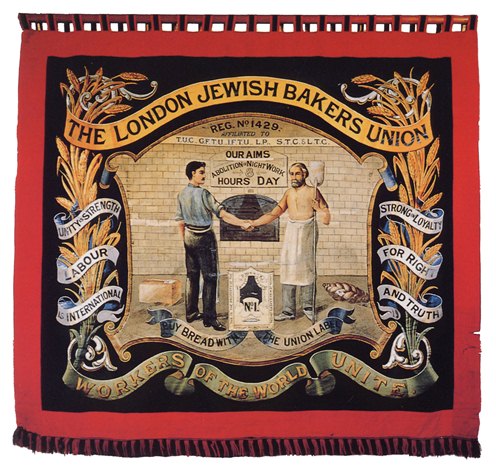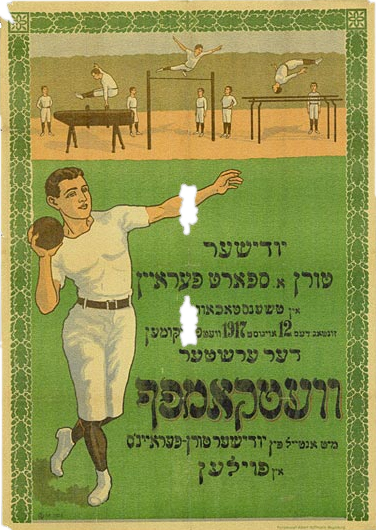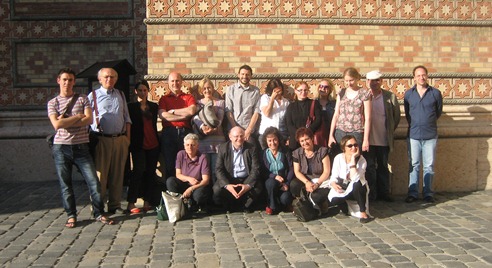Judaica Europeana: alive and kicking after end of EC grant
Judaica Europeana began in 2010 as a targeted project, co-funded by the eContentPlus programme, to digitise content documenting the Jewish contribution to European heritage: books, documents, manuscripts, periodicals, audio recordings, pictures, photographs, videos, postcards and posters. The initial project ended in February 2012 but Judaica is still alive and kicking. Lena Stanley-Clamp, Coordinator of Judaica Europeana, tells us how…
After two years of hard work, we emerged from the project’s final review into Rome’s February sunshine buoyed by a sense of accomplishment. We exceeded our targets for digitising and uploading to Europeana diverse digital material on the history and culture of Jews in Europe. The uploaded metadata records pointed in total to 3.7 million pages/items. We produced more than 30 deliverables, carried out a survey of controlled vocabularies and implemented one vocabulary relevant to our domain. A pilot application of the Semantic Media Wiki to a scholarly database on the Jewish Enlightenment was another achievement, albeit in need of further development.
The dissemination activities exceeded our expectations: 100 events in 25 cities staged by or featuring Judaica Europeana. Digital humanities workshops, virtual exhibitions and a crowd-sourcing inititative in Italy met with a remarkable response, and our illustrated newsletters brought enthusiastic feedback.

London Jewish Bakers Union banner, 1920s, Jewish Museum London
However, it was not all plain sailing as we struggled with challenges posed by the diversity of content, metadata standards and working practices of our cross-domain partners – libraries, archives and museums. After much experimentation and consultation, two different platforms had to be used for the preparation of partners’ metadata. Our technical experts (David Klein at AIU, Marko Knepper at Frankfurt University and the NTUA team in Athens) developed a number of solutions for dealing with the diverse metadata systems and content. The large amounts of audio material brought more complications. A team spirit helped greatly in coping with those challenges.
As aggregators of Jewish content, we had to reach out to potential associate partners with relevant digital collections. With no extra funding to distribute, it took some persuasion to explain the opportunities that Europeana represents in terms of higher exposure and new audiences, access to professional networks and cutting-edge expertise. The project began with 10 partner institutions; by the end of 2011, we were joined by 12 associate partners who were at various stages of digitisation or readiness to upload their collections. There was much more potential out there including in the US where some extraordinary collections on Jewish life in Europe are held. Clearly, there was a need for the work to continue.

Poster: Gymnastic competition of the Jewish Sport Organisation in Poland, Czestochowa, 12 August 1917, YIVO
At a meeting in Warsaw, the partners agreed a Memorandum of Understanding providing a framework for continuity and growth. The Judaica Europeana network will make use of the experience, skills and knowledge acquired by the team, and will sustain the friendships developed over the two years. The leading partners – the European Association for Jewish Culture and the Frankfurt University Library – committed part-time human resources to the project. The National Library of Israel strengthened our capacity by seconding a systems librarian to serve as our Technical Coordinator.

Judaica Europeana partners in front of the Dohány Street synagogue, Budapest, May 2011. Front row (from left): Maria Teresa Natale, Jean-Claude Kuperminc, Lena Stanley-Clamp, Guila Cooper, Zsuzsanna Toronyi. Back row: our Budapest guide, Ariel Polyak, Dow Winer, Marzia Piccininno, Pier Giacomo Sola, Svenja Pokorny, Nasos Drosopulos, Rachel Heuberger, Agnieszka Reszka, Anastasia Loudarou, Elizabeth Selby, Tamas Paszternak, David Klein.
Judaica Europeana is above all about providing integrated access to Jewish content for the widest possible public. In its new phase (2012-15), the network will also serve as a conduit for the opportunities created by Europeana, the Semantic Web and the Linked Data environment. This is currently achieved through participation, by some of the partners, in new Europeana projects such as DM2E.
Since the beginning of the new phase, the network has gained 5 new member institutions with more interested in joining. Judaica Europeana sessions and presentations have been held at international conferences. Discussions are currently under way on publishing an encyclopaedia in RDF that would provide a valuable contextual resource for Judaica content. Plans are in hand for a joint DM2E/Judaica Europeana digital humanities workshop at the British Library next June.
For more information, read Judaica Europeana's latest newsletter.
